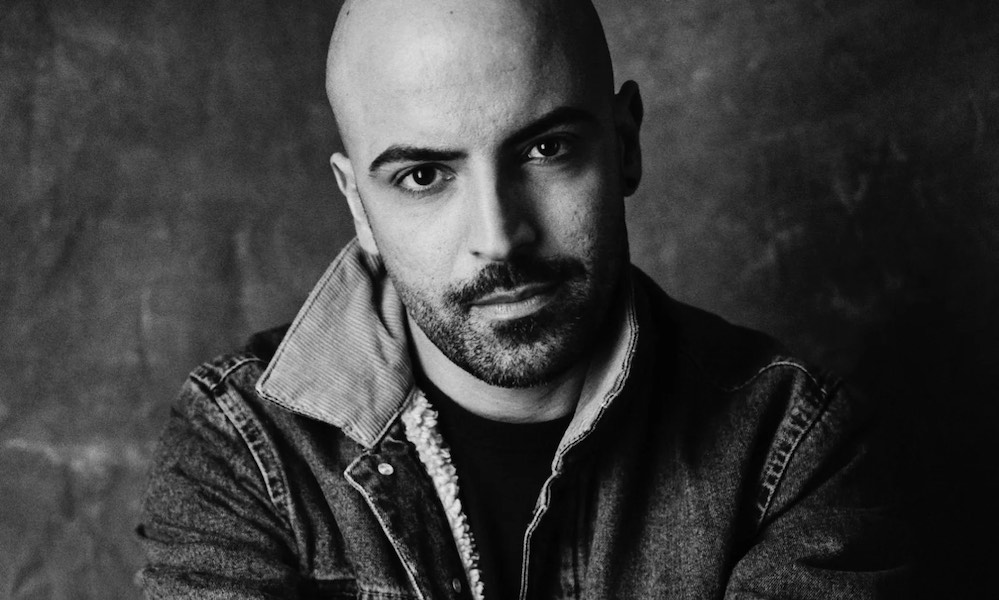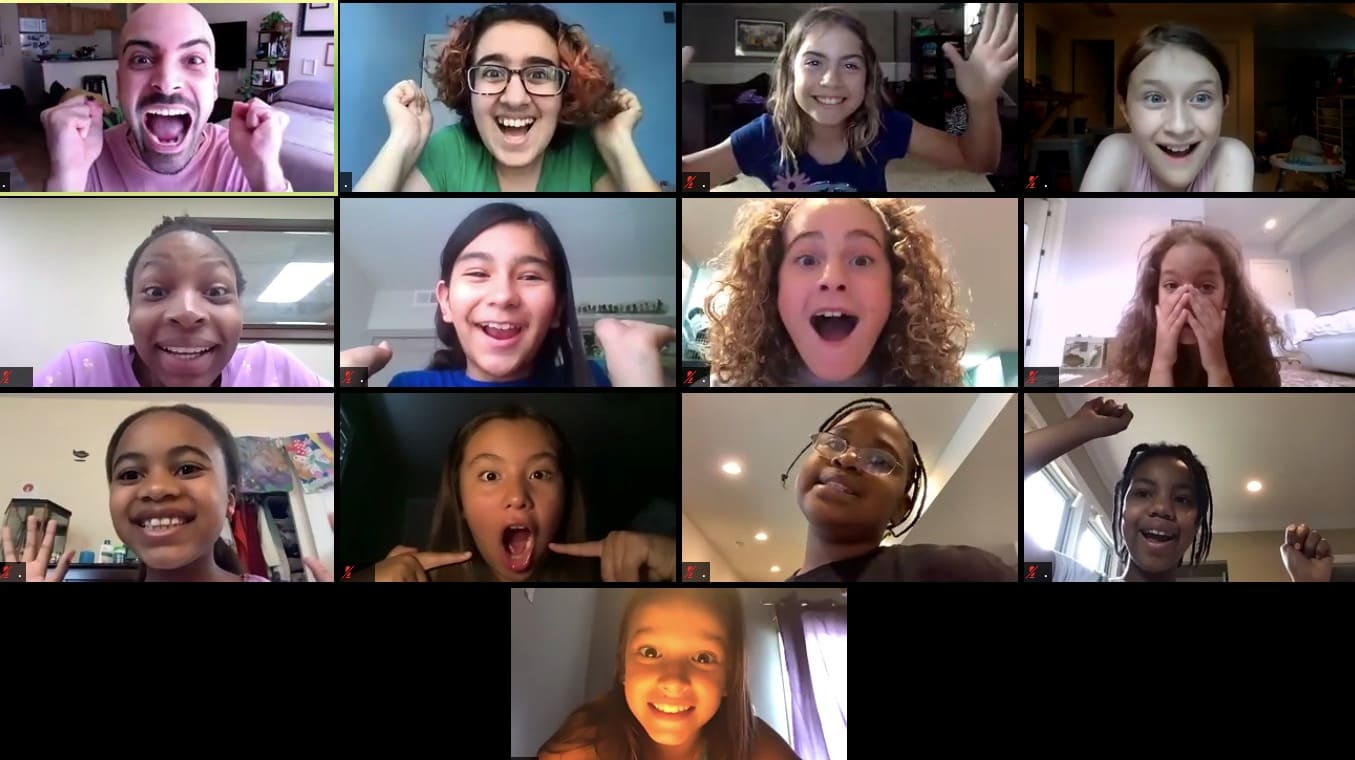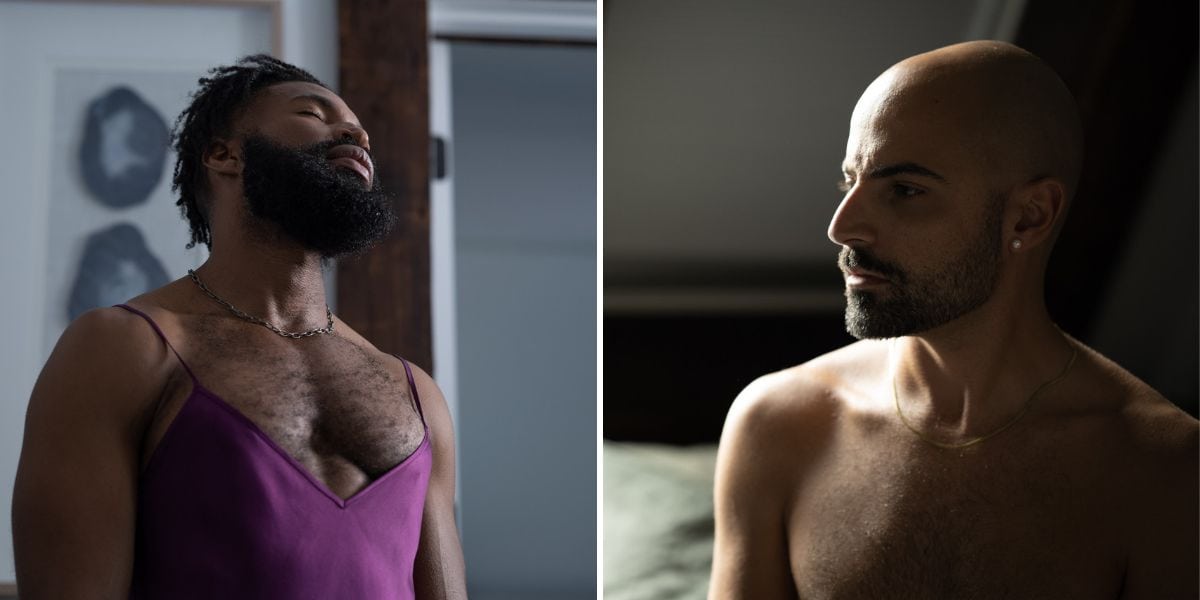“I am not interested really in talking to you as an artist. It seems to me that the artist’s struggle for his integrity must be considered as a kind of metaphor for the struggle, which is universal and daily, of all human beings on the face of this terrifying globe to get to become human beings… What we might get at this evening, if we are lucky, is what the importance of this effort is.”
—James Baldwin, “The Artist’s Struggle for Integrity,” in The Cross of Redemption: Uncollected Writings
M
auricio Pita’s journey to becoming the accomplished DC theater artist that he is has taken him from a country governed by a homophobic dictatorship to a country whose purported espousal of democracy and equal rights for all has also proven to be tentative and fragile. In his journey, he shifted from primarily making theater that is scripted by an individual in the isolation of their writing room to theater that is constructed in collaboration with the communities he finds himself in, from material that is elicited from their own lives. The pandemic brought about another shift, forcing him to expand his definition of performance to include film, while at the same time maintaining the principles of building live performance from the eliciting of personal stories. This time he applied the technique to his own life. He is in the process of turning back to the larger community and providing a more permanent platform for the eliciting and presentation of those stories.

Pita is an immigrant to the USA from Venezuela who specializes in devised theater. The son of Portuguese parents, in 2002, at the age of 17, following his parents’ divorce, he moved to the U.S. to be with his father. The dictatorship in Venezuela was rising at that time. “The rhetoric was really dangerous: anti-immigrant, homophobic, completely silencing any type of opposition,” he told me in a Zoom conversation.
But his primary reason for moving here was the fact that as a gay teenager, he felt freer here. He received a degree in acting from a school in New York City, and in 2014, a show brought him to Washington, DC, where, in addition to finding a relationship, he also found a welcome for his skills as a practitioner of devised theater. He became director of education at GALA Hispanic Theater, shepherding their Paso Nuevo Youth Theater Ensemble. From GALA he moved to Arena Stage and its Voices of Now program, where he continued to work with young people, focusing exclusively on devised theater. Then COVID and the subsequent shutdown came.
One of the effects of the pandemic was to force individuals and institutions whose very identity had been defined by live onstage performance to figure out different ways to connect with an audience so that they could continue to function as storytellers in action. That led folks to look at different media such as podcasting, Zoom theater, and film and to answer the question: Are we still doing theater? During this period the Welders produced Jared Shamberger’s The B Word. Arena Stage commissioned Arena Riffs (a three-part filmed musical series — Psalmayene 24’s The Freewheelin’ Insurgents, The Bengsons’s My Joy is Heavy!, Rona Siddiqui’s A More Perfect Union). These were efforts to straddle a stage/film definition gulf and maintain an audience during the shutdown. And in collaboration with McCarter Theatre Center, Round House Theatre produced a four-play retrospective of the work of Adrienne Kennedy and did it totally online.

Pita worked with middle school, high school, and adult artists to produce the Voices of Now virtual performance response to COVID, which was entitled Waiting Room. Devised theater is a practice in which participants collaboratively explore their personal responses to a stimulus and craft an original performance. The personal material in the final performances often reflects what members of the audience are experiencing in their own lives. For example, the young people in Waiting Room gave voice to what many of us in their viewing audience were also feeling: “I’m waiting for the outside to feel less scary.” “Your own mindset is going to be your biggest challenge.” “There are no shortcuts left. I have to do things the hard way now.” “I’m still afraid.” Inspired by the courageous work of his students, Pita began to re-examine his own journals and notebooks to help him negotiate this turn that the pandemic forced him into. What part had his own thinking about his career and his place in it played in putting him in such a vulnerable position? That’s how his project, the short film Safe Word, came about.
Pita’s response to experiencing the profoundly scary and devastating vulnerability of his profession, as it was highlighted by the pandemic, was to start a film company, completely independent from any arts institution and without any financial support from government, institutions, or any organizations.
“I think one of the things that makes my journey and my film’s company unique,” he emailed me, “is that I’m a theater artist — a theater artist who started a film company!”
In discussing his reasons for starting the company and doing the film, Pita mentions three words: permanence, reach, and control. Those are candidates for safe words if ever I heard any.

Safe Word follows the journey of a man to find the courage within himself to live with integrity, i.e., to be fully human. Cesar meets regularly with a Black man, named Bear, who, by mutual agreement, ties Cesar up and verbally dominates him. To make sure things don’t get out of hand, or possibly damaging, they agree on a safe word. The agreement is that when Cesar says the safe word, Bear will stop all activity. One day Bear demands that Cesar make a shift in their relationship and “reinterprets the rules of the game.” It is the process of making this shift that the film concerns itself with.
On its surface, the narrative is a provocative tale of a “kinky” relationship. And, admittedly, the gorgeously designed and staged experience is a turn-on: the intimacy and tension between the characters are palpable. The unsanctioned aspects of the relationship and the secrecy surrounding them are clear. But this narrative is also an effective metaphor. We all have voices inside of us. Those voices often tussle with each other. Bear is the embodiment of that aspect of Cesar’s inner voice that refuses to allow Cesar to beat up on himself or to lie to himself. Bear is the very embodiment of “tough love.”
Though humiliation may often be part of such real-life relationships, we never actually see Bear humiliate Cesar. On the contrary, as demonstrated in these lines from the film, Bear confronts Cesar with the evidence of his own well-honed practice of psychic self-abuse:
Cesar: I look in the mirror. I hate the person staring back.
Bear: Enough. Tell me one thing you love about yourself.
When Pita moved to DC, he arrived in a city that had not too long ago been known as Chocolate City. The city is now a kind of ghost town of what that nickname once proffered. By appointing a Black man to be Cesar’s inner voice and promoter of truth, Pita in Safe Word pays attention to the ghostly, water-for-chocolate atmosphere that pervades this rapidly changing city, and places race — and all of the deflected projections that are made upon Black and other nonwhite people — at the center of the film’s enactment of the universal struggle (in James Baldwin’s words) “to get to become human beings.”
“I have struggled with racial identity since moving to the U.S.,” he told me. “In Venezuela race is not a conversation that is had. People pretend racism and colorism don’t exist. But you’re very much aware of it.”
Pita’s next project will, in fact, be a documentary about Southwest Washington, DC, another area of the city that is, Pita notes, “experiencing really fast development.” Why don’t you call it gentrification? I ask. “That’s what it is: gentrification. That’s a very complicated word. And I have a complicated relationship to it.” The working title of the documentary is Changing Channel.
Mauricio Pita calls his company Tepui (pronounced teh-POO-ee) Media. It’s a reference to a series of mesa-like mountains that are so high that their ecosystems are unique, both from each other and from the lands below.
Toward the end of our conversation, Pita emphasized this point: “There are a lot of stories to tell here. Given the right platform and the right support, DC has the ability to tell stories and send them out to the rest of the world. I wanted to contribute to that effort: to be able to provide opportunities to other artists like myself and communities who want their work to be part of a wider conversation.”
ABOUT MAURICIO PITA
A Venezuelan-American actor, director, and producer. Mauricio is the community programs manager at Arena Stage, where he oversees the Voices of Now program (VON), which produced two feature docudramas during the pandemic and most recently nine short films for the 2022 VON festival at Arena Stage. Mauricio served as creative producer for the 2020–2021 virtual season of IN Series. His projects with IN Series included the film Orphée et Eurydice, the audio play A Fairy Queen, and the interdisciplinary film/theater piece Boheme in the Heights. All three were featured on DC Theater Arts’ 2021 lists of outstanding productions.
Tepui Media presents Safe Word
Directed by Christopher Cunetto
Written by Eva von Schweinitz & Christopher Cunetto
Starring Mauricio Pita (Cesar) and Jonathan Adriel (Bear)
Music by – Ryan Walsh
Upcoming DC-area Safe Word screenings
• Richmond Film Network’s Short Film Series, Richmond, VA, February 15, 2023, 7:00 pm at Movieland at Boulevard Square in Richmond, VA.
• Ocean City Film Festival 2023, Ocean City, MD, March 2–5, 2023 OC Center for the Arts in Ocean City, MD.
For tickets and information about other future screenings, click here.
See DC Theater Arts’ six previous Artists Who Inspire! here.




